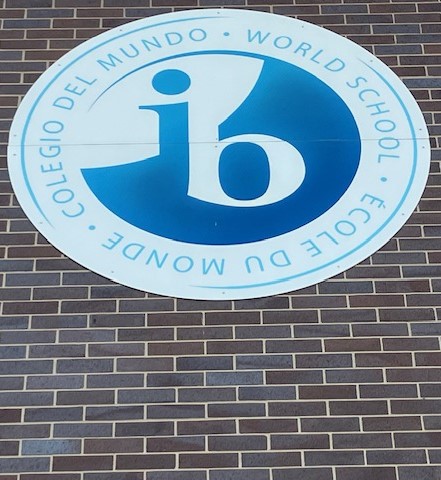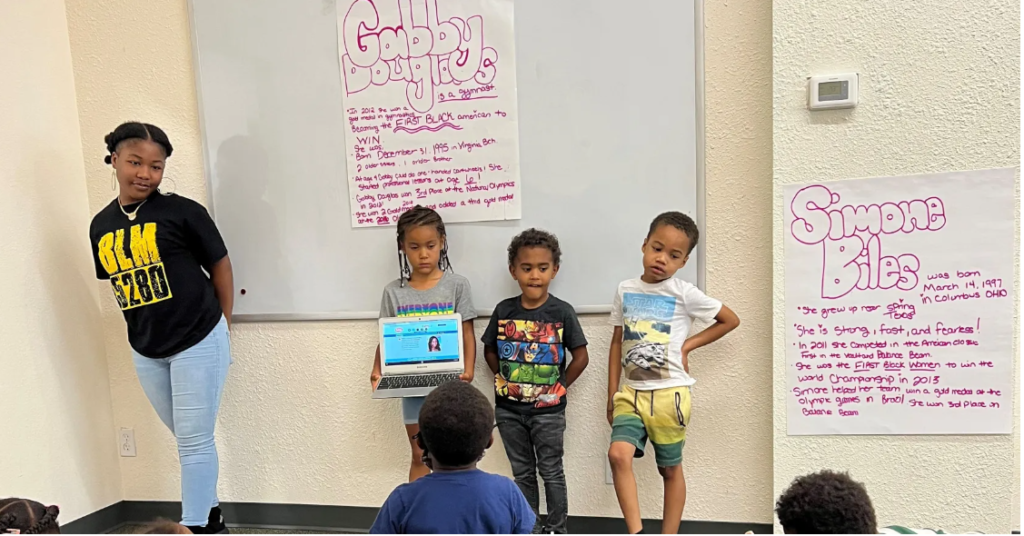Northfield High School follows an “IB for All” approach to it’s education program. To know what that means takes an understanding of the overall International Baccalaureate Program. (Information for this story was gathered from Northfield’s IB Coordinators Peter Wright and Reina Cruz and other IB sources.)
IB is a challenging interdisciplinary curriculum for K-12 that stresses critical and independent thinking through projects to prepare students for college and to gain a global perspective on one’s life and the world, according to various IB practitioners. Some history from the International Baccalaureate Organization, a not-for-profit educational foundation:
“In 1968, the IB Diploma Programme (DP) was established to provide a challenging and comprehensive education that would enable students to understand and manage the complexities of our world and provide them with skills and attitudes for taking responsible action for the future. Such an education was rooted in the belief that people who are equipped to make a more just and peaceful world need an education that crosses disciplinary, cultural, national and geographical boundaries.”
At NHS the International Baccalaureate program is the foundation of the school’s culture.
It means that all students get something out of IB, that in all grades and classes, teachers and students use a common language about what makes successful learners and that they expect everyone to strive to demonstrate IB core principles: Knowledgeable, Thinkers, Communicators, Principled, Open-Minded, Caring, Risk-Takers, Balanced and Reflective.
NHS has seen that having an IB For All school narrows the academic divide between groups of students. NHS believes in the expectations of the IB curriculum for all four years. All courses at the 9/10 level are aligned to expectations in grades 11/12 when students can enroll in the IB Diploma Program.
At many schools, IB programs essentially amount to a school within a school, segregated from the larger community. From the start, Northfield has been driven by the belief that IB’s challenging curriculum benefits all students, so all students are part of IB.
As for the logistics, 11th and 12th graders all take IB classes. At a minimum, they take IB Language and Literature (communication/information literacy is fundamental to life) and IB Math. Students are encouraged to take additional IB classes beyond the minimum two required classes, depending on their interests and goals.
At the highest level, students can choose to pursue the full IB Diploma which involves 7 IB classes, plus CAS (community service/extracurricular activities) and a 4,000 word research paper on a topic of the students’ choice. This makes sense: choosing the full IB Diploma gives students a leg up in college admissions, scholarship applications, college readiness and college affordability.
Northfield emphasizes the value of IB beyond gaining college credit. The credit is beneficial and allows students to move into advanced classes more quickly, but the school emphasizes IB over AP or concurrent college enrollment because IB nurtures the development of skills that allow students to be successful at college.
This isn’t just speculation – peer reviewed research on the performance of IB graduates in college shows that students completing IB coursework are more likely to graduate college than peers who do not.
Click here to go to Northfield’s IB page for information on courses and FAQs.
A look at Northfield’s IB program, 2019-2023
- Number by year of students pursuing the full IB Diploma. These numbers are per cohort. For example, since NHS currently has both the classes of 2024 and 2025, they currently have 296 IB Diploma students at NHS.
2019: 48
2020: 45
2021: 43
2022: 55
2023: 92
2024: 142
2025: 154
- Percentage of students who attempted the Diploma Program and earned the IB Diploma (based on test results). Students who do not earn the IB Diploma can still earn college credit for the IB exams they did pass, and their experiences have been shown to help them in college.
2019: 30%
2020: 58%
2021: 73%
2022: 75%
2023: 57%
NHS offers context: In 2023 IB returned to the pre-pandemic curves for their exams. Many IB practitioners believe that was premature, given that the class of 2023 was significantly impacted by COVID during their first two years of high school. IB results dropped around the world as a result of this decision from IB.
- Percentage of IB Diploma students who are Black and/or Hispanic.
2019: 48%
2020: 53%
2021: 21%
2022: 20%
2023: 29%
2024: 34%
2025: 31%
(Northfield notes that on the lower number of Black and Hispanic students in recent years it is important to remember that the school has progressively enrolled more white students meaning that in the past two years the numbers are closer to being reflective of the overall demographics of the student body, as compared to 2021-22.)
(Note: The Foundation for Sustainable Urban Communities that publishes Central Park Education News supports the Northfield High School IB program with grants.)




